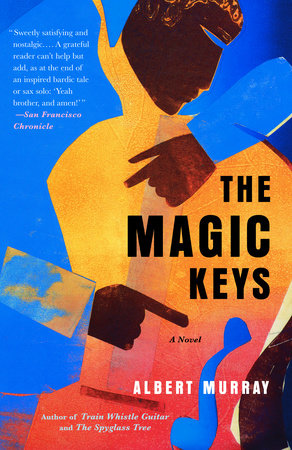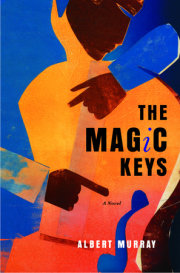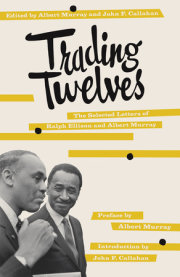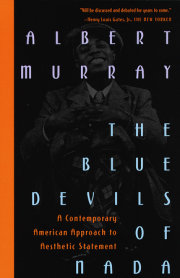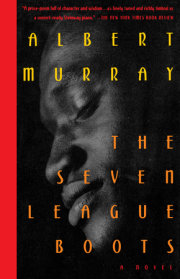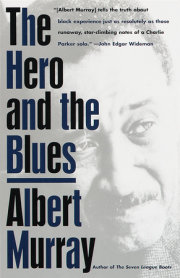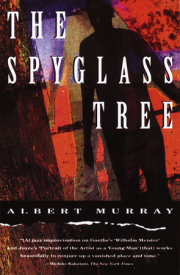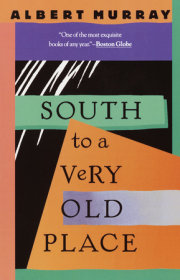The early-morning walls and windows of the fourth-floor apartment were there once more even before you opened your eyes. And outside, the nightlong mid-September drizzle had finally stopped. So you already knew how the neighborhood streets of your part of Greenwich Village and what you would be able to see of the Manhattan skyline would look later on when you came along the sidewalk to the Sixth Avenue bus stop. With your eyes still closed you were also already aware of how the recently rented three-room apartment looked in the dim early-morning daylight.
But before any of that you were already also very much aware of the also and also of who was no longer in bed beside you because you could hear her moving about in the bathroom, and then there was the sound of the shower, which is why I crossed my fingers for good luck once more, thinking, This many miles from Gasoline Point, this many miles along the way.
(You do not wake up every morning actually saying or even consciously thinking: and one and two and three and four and one two three four/one two three four plus the also and also of the specific day of the week, month, and year once more. Not as a deliberate or even conscious routine. But the also and also continuity of the pulse of the conventional actuality of the workaday world of clocks and calendars and maps and mileage charts is there even so. As is also the awareness of local landmarks, and thus destinations and aspirations, however obscure, without which chronology itself may well be not only pointless but perhaps also even inconceivable.)
When I heard the softly padding footsteps heading back through the living room to the kitchenette, I still didn’t open my eyes. So what was said was not good morning. What was said was seven o’clock. Which was also the way Mama used to say what she used to say to let you know that it was time to rise and wash up and brush up and shine up before breakfast and the first bell of school bell time. September, September, and this time in New York. The Philamayork of the old Mother Goose mantelpiece clock fireside tell-me-tale times of the long-gone boyhood nights on the outskirts of Mobile, the Alabama Bay city gateway to the Spanish Main and the Seven Seas.
And also the New York City during the time of the central Alabama college campus clock tower chimes as you heard them through the shrubbery outside the ground-floor periodicals room of the library and beyond the tip-tops of the poplar saplings outside the long second-floor main reading room during study periods; and also as you visualized it in the after-hours darkness of the dormitory lounge when the radio announcers said it the way they used to say it along with the sound of the station signal.
Nor was there anything more evocative of New York as beanstalk castle town of skyscrapers and patent-leather avenues and taxicab horns and motors and subway trains than the Street Scene score that so many sound tracks for drawing-room comedies used to begin with, the camera panning the skyline from the air and then zooming in on the midtown traffic and people along the sidewalks with the shopping district showcase windows sparkling in the background, before settling on the swanky hotel, apartment building, or town house where you picked up the story line.
September, September in New York City once more, and this time also the also and also of Eunice née Townsend now become Mrs. Me plus the also and also of my graduate school course of study at New York University off Washington Square and of hers at Teachers College, Columbia University, up on Morningside Heights. Eunice Townsend, Eunice erstwhile Townsend who was there because she was the one above all others ever considered all the way back to the crepe myrtle yard blossom and dog fennel meadow days of Charlene Wingate, who said, Not now, Scooter, and said, I’ll tell you when, Scooter, and finally did. But not for always.
Eunice Townsend, Eunice née but now erstwhile Townsend. (And also no longer the Nona that she had been nicknamed during her freshman year at State Normal Junior College.) She did not say anything else to keep me from dozing back off to sleep, because we had been married and living together for many weeks then, and she knew that I was already sitting up. Because she was also very much aware of the fact that I was the way I was about never being late for anything, and also that with me it had already become a matter of not being tardy for school bell time long before it also became the basic principle of road band bus departure schedules and being dressed up and tuned up and onstage before curtain time.
Before I opened my eyes I was also aware of the sounds and aromas of breakfast preparations in the kitchen then. But then, as also used to happen during school bell days of the week when it was Mama in the kitchen, and the stove was a wood burner and the light was from an oil lamp, it was almost as if you were all alone. Because you had to prove to Eunice as you used to feel that you had to prove to Mama that you could go out and do whatever you were supposed to do. Because then I was re- membering what book I had been reading the night before and what references I was using and where I stopped and put in the page marker and turned off the light. Which is why I also al- ready knew how the desk would look in the morning light be- fore I opened my eyes and stood up and headed for the bathroom.
Which is why what I began to think about then were the specific research materials needed for the term paper I was working on. And about how much I preferred looking things up in the New York Public Library up at Fifth Avenue and Forty-second Street to trying to use the crowded university campus library. New York, New York. So far the public library was never overcrowded in the mornings and as you worked on your academic exercises you were also aware of being in the midst of the comings and goings of professional scholars, authors, and journalists, many of whom you recognized at first sight. New York, New York.
When I stepped out of the shower and began getting dressed, there was the static blurred chatter that was the portable radio chatter that in those days was the equivalent of the New York tabloid newsprint, from which you could foretell the headlines and flash photos that you would see along with the bright covers of the weekly and monthly magazines on the sidewalk stalls on your way across Sheridan Square to the uptown Sixth Avenue bus stop.
We ate breakfast sitting on the high stool at the barlike sideboard shelf attached to the ledge of the wide window that overlooked the backyard patio four flights below and from which you could also see out across the rooftops of many of the old Federal period buildings in that part of town, which had turned out to be less than a ten-minute walk from the University Place and Washington Square corner of the campus.
All of the graduate school sessions for my course of study in the humanities were conducted in the evening in those days. And the special advanced seminars and laboratory sessions in Education for which Eunice had enrolled at Teachers College met in the afternoons. So there was no rush to be in place for morning roll checks, but we kept ourselves on strict morning timetable anyway, precisely because of all the local attractions in New York City that were not there for you in any conventional university town, where campus activities were the main local attraction. Not that we passed up very many of the not-to-be-missed feature attractions that we could afford from time to time, but otherwise we followed our regular self-imposed Monday through Friday study schedule, even on the mornings we spent studying in the apartment and taking care of domestic chores.
Me and you, I said as I kissed her at the door on my way to the elevator, me and you, which she knew was a jive line that I had picked up from Joe States, the all-star drummer who was also from Alabama and who had become my self-elected mentor the day after I joined the band of the Bossman Himself as a temporary replacement bass player in Cincinnati the week after I graduated from college, because I had told her about him in the first letter I sent back to Alabama, and I began using it as a complimentary close before my initials on all of my letters and tourist postcards to her from then on. And her response when I finally came back south and said it in person was always a playful mock pucker as she kissed me back—as if to say, One jive gesture deserves another.
What she said this time was, See you back here for dinner at eight-thirty sharp, rover boy. Or for warmed overs if not too long thereafter. After which it’s leftovers—but of course there’s always the phone. And I said, Hey me, I did time helping to keep time for the Bossman Himself.
Which is why when I came on outside and headed for the bus that morning I was thinking about Joe States again. Good old Joe States from the ’Ham in the ’Bam. Who was to say what he was to say when the band came back into Manhattan several weeks later, and I took her backstage that first time. Hey, here he is, he said, coming toward us. What did I tell you about this schoolboy statemate of mine! Check it out for yourself, fellows.
And as I told her he would, the Bossman Himself said, He said you were most beautiful, but he didn’t say that you were this beautiful. And she smiled as he gave me an ever-so-father-caliber avuncular wink as he spoke and then he gave her the one for each cheek routine, and Joe States hooking his arm in hers took her in tow to introduce her to everybody else while I talked to the Bossman and then Old Pro, the chief arranger and straw boss in charge of rehearsals. Then there was Milo the road manager, also known as Milo the Navigator, who gave me the rehearsal schedule and address of the hall that they would be using before moving into the recording studio that next week.
Eunice Townsend, Eunice Townsend, Eunice Townsend, Joe States said again at the stage door leading back out into the audience as he had said when he first heard her name when I mentioned her to him shortly after I joined the band in Ohio that June after graduation, which is when he also said, Eunice Townsend. Sounds like it goes with somebody come from a family that stands for something very special, Schoolboy.
And when I dropped in on them by myself two afternoons later he said, Hey, she’s down home all right, Schoolboy. And Aladambama people to boot. How ’bout it, Bloop! And Herman Kemble the big-toned tenor saxophone player from Texas said, Hey, Schoolboy, when you come up with somebody like that, man, you make us all look good and feel good, too. Just like when one of us hits that right note that sounds like something we were all waiting to hear without realizing it before we hear it.
Which ought not to be no big surprise to anybody in this outfit, Osceola Menefee the trumpet player who sometimes doubled as vocalist said. I mean after all, it was just like he was raised to be one of us as soon as he came on board when Shag Phillips had to split. So now he can’t help being one of us for the rest of his life, don’t care where else he goes or what else he might end up doing for a living. talking about keeping the right time with the right people, Schoolboy. That’s the thing about life, just like it’s the thing about music.
And that was when Joe States said, Hey yeah, man, but let me tell you something else. About what I’m talking about when I say what I say about being down-home people. I’m talking about somebody got all them knockout cover girl good looks and all that college girl class about her, who I bet you a hundred to one can also step into the kitchen and stir up a batch of some of them old-time Mobile tea cakes. Just like the ones that come from the old Rumford Baking Powder recipe, the ones your mama used to roll out like biscuit dough and cut out with a top of a baking powder can. Man, what I’m talking about is somebody that can do what your mama or your favorite aunt or even your grandma can do, because she’s them kind of people along with everything else. Hey, and with them same honey brown fingers that make you realize what all that diamond and gold stuff in Tiffany’s is really made for. One hundred to one, first come, first served, and I know my bet is safe because I know my main man here.
On the bus rolling uptown from Fourth Street along Sixth Avenue I began thinking about how Miss Lexine Metcalf would be most likely to feel when she found out that I was back in school again; and I was pretty certain that I knew what she would tell her present group of students at Mobile County Training School about me and I hoped that they felt the way I always felt about her because she was the one who made me realize that the also and also of school bell time was not as different from the also and also of Miss Tee’s storybook times in Mama’s rocking chair and yarn-spinning time in Papa Gumbo Willie McWorthy’s Barbershop as I and perhaps the majority of people had taken for granted because of the stern sound of period bells and harsh actuality of passing and failing grades.
As the bus rolled on toward Herald Square I was thinking about how Miss Lexine Metcalf was also the one who made it a point to keep reminding me every now and then even when I was still in junior high school that I should never forget that I just might be one of the very special ones who would have to travel far and wide to find out what it is that I may have been put here on earth to make of myself.
Which is why as we came on through the intersection of Broadway and Sixth Avenue at Thirty-fourth Street, I was also thinking about my old roguish-eyed freshman and sophomore roommate again who, when I told him about what Miss Lexine Metcalf used to say about faring forth, said, hithering, thithering, and yondering, picaresquelly but not quixotically, one hopes. Because in quest and maybe even conquest rather than serendipity. Because such a quest is for clues, my good man. That Miss Lexine Metcalf of yours is right on target.
And so was my Miss Jewel Templeton of Hollywood, when she said what she said in the south of France about magic keys (some sharp, some flat, some natural; some solid gold, some sterling silver, some perhaps even platinum, or in fact of any other alloy, whether already in existence or yet to come).
And so also was my good old roommate himself with his yea, verily as he scribbled each entry in the notebook in which he recorded evidence that he called the goods that added up to his personal estimate of the situation for the time being. So was he on target, who was the one who said what he said about necessity being the mother of the invention of fathers and who was also to say what he said about the function of father figures as symbols of direction and thus also of detours.
At the Forty-second Street stop I used the rear exit, and as I came along the sidewalk past Bryant Park and up the steps to the side entrance to the library I was still thinking of my old roommate and I wondered how long it would take his next letter from wherever he was to get to me from the last forwarding address that I had sent to his last forwarding address, and I couldn’t help guessing what he would say about my being back in school and about my new roommate.
I took the elevator up to the third floor and came around the corner and along the hall and turned into the old card index area. Then from the checkpoint for the south wing of the main reading room I could see that I had arrived in time to get the table and seat that I had already become used to settling into as if into my own private cubicle.
Copyright © 2005 by Albert Murray. All rights reserved. No part of this excerpt may be reproduced or reprinted without permission in writing from the publisher.

